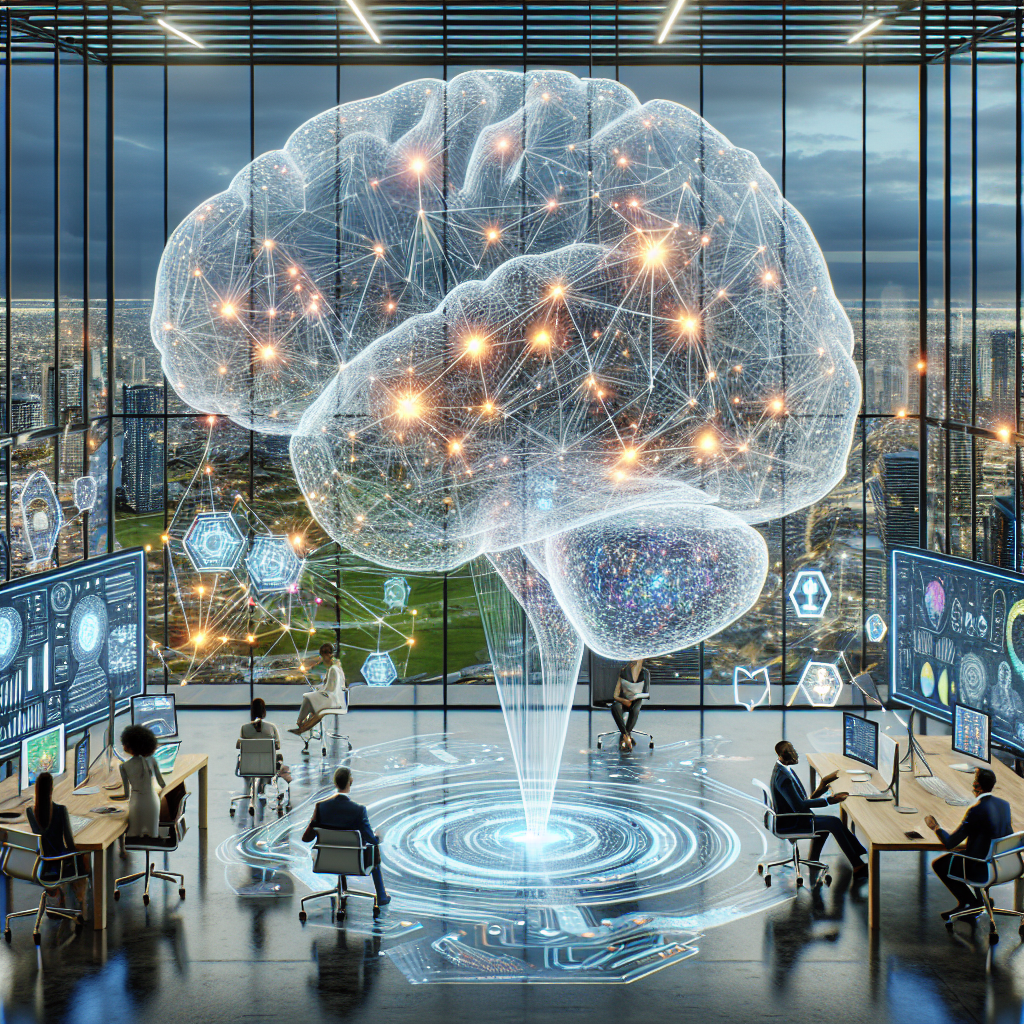The Impact of Agentic Intelligence on Development

In today’s rapidly evolving technological landscape, agentic intelligence is emerging as a transformative force driving progress across various sectors. Understanding how autonomous systems can contribute to developmental goals is crucial for future innovation. This article delves into the impact of agentic intelligence on development and explores the synergy between human decision-making and artificial intelligence in advancing societal progress.
Introduction
Agentic intelligence refers to the capability of AI agents to act independently, making decisions based on environmental inputs, objectives, and learned experiences. These intelligent systems are increasingly being integrated into industries such as healthcare, finance, transportation, and more, reshaping how we approach development challenges. By enhancing human-machine collaboration, agentic intelligence can unlock new avenues for growth, efficiency, and innovation.
In this blog post, we will explore:
- The fundamental principles of agentic intelligence.
- Its impact on various developmental sectors.
- Real-world examples from leading entities like IBM Watson, Stanford University, and the European Union.
- The role of agentic intelligence in enhancing human-machine collaboration.
- Frequently asked questions about agentic intelligence.
Understanding Agentic Intelligence
What is Agentic Intelligence?
Agentic intelligence refers to the autonomous capabilities of AI agents that enable them to operate independently within a defined environment. These systems can analyze data, make decisions, and execute actions without constant human intervention. The concept stems from advancements in machine learning, natural language processing, and robotics.
Key characteristics of agentic intelligence include:
- Autonomy: Ability to perform tasks and make decisions autonomously.
- Adaptability: Learning and adjusting strategies based on new information or environmental changes.
- Proactivity: Initiating actions without direct human commands to achieve specific goals.
The Role of AI Agents in Development
AI agents, powered by agentic intelligence, are revolutionizing various sectors by enhancing productivity, optimizing resource allocation, and improving decision-making processes. Their impact is profound across industries:
- Healthcare: AI agents can assist in diagnosing diseases, managing patient data, and personalizing treatment plans.
- Finance: Automated trading systems and fraud detection mechanisms significantly reduce risks and enhance accuracy.
- Transportation: Autonomous vehicles and logistics optimization lead to safer and more efficient travel and delivery services.
The Impact of Agentic Intelligence on Development
Enhancing Human-Machine Collaboration
The synergy between human decision-making and artificial intelligence is advancing societal progress by enhancing human-machine collaboration. This partnership leverages the strengths of both humans and AI, leading to increased efficiency and innovation across various sectors.
Real-World Examples:
IBM Watson: Known for its ability to analyze large volumes of data quickly, IBM Watson has been instrumental in healthcare diagnostics, transforming patient care through personalized treatment plans.
Stanford University: A pioneer in AI research, Stanford’s initiatives demonstrate the potential of agentic intelligence in solving complex societal challenges, from climate change to public health.
European Union: Through its Horizon 2020 program, the EU is investing in AI technologies to drive sustainable development and address key issues like energy efficiency and mobility.
Development Through AI Agents
Agentic intelligence impact on development through AI agents is evident as these systems automate routine tasks, freeing up human resources for more complex problem-solving. This shift not only increases productivity but also fosters innovation by allowing humans to focus on creative and strategic tasks.
Applications in Various Sectors:
Agriculture: Precision farming techniques powered by agentic intelligence optimize resource use, improve crop yields, and reduce environmental impact.
Manufacturing: Smart factories utilize AI agents for predictive maintenance, reducing downtime and increasing operational efficiency.
Education: Adaptive learning platforms personalize education experiences, catering to individual student needs and enhancing learning outcomes.
Addressing Challenges
While agentic intelligence offers numerous benefits, it also presents challenges that must be addressed:
Privacy Concerns: As AI systems handle vast amounts of data, ensuring privacy and security is paramount.
Job Displacement: The automation of routine tasks may lead to job displacement. However, it also creates opportunities for new roles focused on managing and collaborating with AI.
Bias in AI Systems: Ensuring fairness and transparency in AI decision-making processes is crucial to prevent bias.
Future Prospects
The future of agentic intelligence holds immense potential. As technology continues to evolve, we can expect even more sophisticated AI agents capable of handling complex tasks autonomously. This evolution will likely lead to breakthroughs in areas such as:
Healthcare: AI-driven diagnostics and treatment plans could revolutionize patient care.
Environmental Sustainability: AI systems can optimize resource use and reduce waste, contributing to a sustainable future.
Smart Cities: Integrated AI solutions can enhance urban living by improving transportation, energy management, and public safety.
Conclusion
Agentic intelligence is reshaping industries by enhancing human-machine collaboration and driving innovation. As we continue to explore its potential, it’s essential to address challenges such as privacy concerns, job displacement, and bias in AI systems. By doing so, we can fully harness the transformative power of agentic intelligence, paving the way for a more efficient, innovative, and sustainable future.
Understanding how autonomous systems contribute to developmental goals is crucial for future innovation. As entities like IBM Watson, Stanford University, and the European Union demonstrate, the possibilities are vast. Embrace agentic intelligence today and be part of the next wave of development through AI agents. Let’s work together to create a brighter, smarter future.
Frequently Asked Questions
What is agentic intelligence?
Agentic intelligence refers to the autonomous capabilities of AI agents that allow them to operate independently within a defined environment, making decisions based on data and objectives.
How does agentic intelligence impact development?
It enhances productivity by automating routine tasks, fosters innovation through human-AI collaboration, and drives progress in various sectors such as healthcare, finance, and transportation.
What are some challenges associated with agentic intelligence?
Challenges include addressing privacy concerns, managing job displacement due to automation, and ensuring fairness and transparency in AI decision-making processes.
How can we harness the potential of agentic intelligence for a sustainable future?
By investing in research and development, implementing ethical guidelines, and fostering collaboration between humans and AI systems, we can leverage agentic intelligence for societal advancement.
